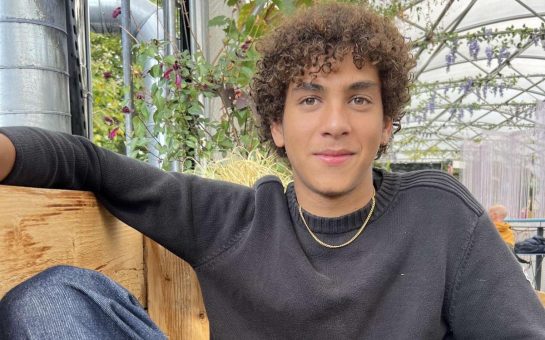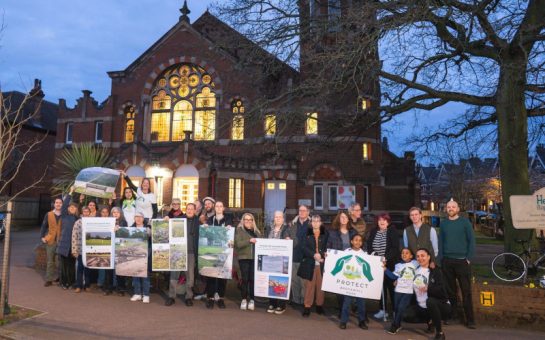A report this week found that more than 700 children in Lambeth care homes suffered cruelty and sexual abuse.
The Children in the care of Lambeth Council Investigation Report examined the scale and nature of sexual abuse experienced by children in the care of Lambeth Council since the 1960s.
The investigative report, which is part of the Independent Inquiry into Child Sexual Abuse, focused on five Lambeth homes: Angell Road, South Vale Assessment Centre, the Shirley Oaks complex, Ivy House and Monkton Street.
The report found that frontline staff in these homes frequently failed to take action when they knew about sexual abuse, and in many cases, child victims were left to cope with the trauma of their abuse on their own.
The executive summary of the report said: “The true scale of the sexual abuse against children in Lambeth Council’s care will never be known, but it is certain to be significantly higher than is formally recorded.”
Lambeth Council responded to the Independent Inquiry into Child Sexual Abuse in Lambeth.
In the statement it said: “Lambeth Council wishes to restate its sincere and heartfelt apology to all victims and survivors of abuse and neglect whilst in Lambeth’s care.
“The council, which was responsible for their care and protection, failed to do so with profound consequences.
“The council is deeply sorry for their experiences.”
Lambeth also recognised that children from Black and Multi-Ethnic communities suffered disproportionately.
The inquiry found that racism was evident in some staff’s hostile and abusive treatment.
In Shirley Oaks in 1980, 57% of children in its care were black and during 1990 and 1991, 85% of children who lived at South Vale were black.
The council have set up Lambeth Children’s Homes Redress Scheme, to pay compensation to people who were abused or lived in fear of being abused while in Lambeth’s care as children.
Councillor Claire Holland, Leader of Lambeth Council, said: “The scheme honours our pledge to face up to the mistakes of the past.
“Lambeth today is a different, more child-focused and positive place for young people.
“But we must continue to learn the lessons of the past and never forget how we failed so many.”
Not just Lambeth
Unfortunately, it seems this south London borough is not alone in its historic failure to look after children in care.
Sean Geoghegan, 62, from Islington, was in care as a child.
He is a trailblazer in the care experienced community and founded the National Association of Young People In Care.
He said: “I’m part of a campaign organisation trying to get Islington to take full responsibility not just for its past but the cover-ups afterward.
“There are many similarities between this borough and Lambeth. Both were Labour, terrified of bad press so they preferred to cover this up, and denied this happened.
“There were social workers who came forward to report abuse. The Islington Council had a policy of not informing the police. All of the abusers were allowed to get away with it.”
Sean spoke to the Shirley Oaks Survivors Association whilst writing Turning Point, a report regarding reparations for the care experienced community who were failed by Lambeth whilst children in care.
Turning Point aims to create “a chance for a new relationship with the care community, to work in co-production to improve services, and to encourage the council and its workers to become trauma-informed by acknowledging past mistakes.”
The Shirley Oaks Survivors Association (SOSA) is an action group made up of hundreds of people who suffered abuse at the hands of the Lambeth Children’s Home.
Sean said: “I read the SOSA report, and there is a direct connection with Lambeth.
“For example, in 1970 the Islington Council employed the superintendent of Shirley Oaks to oversee residential care employment in Islington.
“There are way too many incidents to cover; the abuse in Islington homes was endemic and systemic.
“I experienced it personally and witnessed it. Recently, I was a witness in court for a female friend who was abused in our home. The abuser was found guilty.
“I’m going to give the police details of my own abuse. I also have the testimony of others who were in care with me.”
Councillor Kaya Comer-Schwartz, Leader of Islington Council, said: “Abuse of children in Islington’s care homes was the worst chapter in the council’s history, and we are deeply sorry for the council’s past failure to protect vulnerable children.”
Unregulated Homes
Sean said: “Fostering has got some serious problems.
“As we’ve seen this past week unregulated homes should be ended.”
However, exactly the opposite seems to be the case.
Despite the high-profile coverage of the Lambeth Abuse Scandal, a decision made earlier this year remains unaffected.
Education Secretary Gavin Williamson announced in February this year that there would be a ban on placing vulnerable children under the age of 16 in unregulated accommodation.
This ban would come into force in September 2021.
Article 39, a charity which fights for the rights of children living in state and privately-run institutions, argues that this legal change will leave thousands of children in care aged 16 and 17 without protection.
In England and Wales, the leaving care age is 18, although young people can leave care from the age of 16.
This means that despite the historic evidence of problems with unregulated homes, the Government says that councils can continue putting children aged 16 and 17 into unregulated accommodation.
A spokesperson for Article 39 said: “This is discriminatory and an injustice to older children in care.
“The Government’s own data shows that only around 100 children aged 15 and younger will benefit from their legal change, whereas at any one time around 6,000 children aged 16 and 17 who are looked after by local authorities are living in unregulated accommodation.
“A third of 16 and 17-year-olds in care currently live in unregulated accommodation.”
Earlier this year, the Mail on Sunday found that almost 1,300 reports of abuse against children living in unregulated care homes were made in just two years.
Almost one in five related to sexual abuse and exploitation, and there were also allegations of physical abuse and trafficking.
Emma Lewell-Buck, Labour MP for South Shields, spoke up against the unregulated accommodation ban in the House of Commons on 20th July, accusing the legal change of creating a “two-tier discriminatory system”.
She said: “Children in foster care can remain in that setting until they are 21-years-old, but those without a foster family are being told that their leaving age will not be 18, as it always has been, but now 16.”
Despite Lewell-Buck bringing the voice of care experienced people to the House, Labour did not oppose the regulations, instead using the Committee as a chance to “scrutinise the proposals”.
Lewell-Buck said she felt disheartened and a lone voice in the House of Commons fighting for the rights of children in care.
The Care Review
In March, the Government launched an independent review of children’s social care in England.
The chair of the review, Josh MacAlister, responded to the report.
He said: “The review can learn so much from the horrific mistakes of the past.
“We have so much more to do to protect vulnerable children and young people now and in the future.”
Sean is a member of the Experts by Experience (Ebe) board.
He explained: “We’re a group of individuals with lived experience who sit at the heart of the review and make meaningful decisions throughout.
“As a member of the EbE I wouldn’t say that the Independent Inquiry into Child Sexual Abuse is a focus at all within the Care Review.
“This is certainly an issue for care experienced people to discuss between themselves.”
Sean recommends a National Redress Scheme to provide support to people who experienced institutional child sexual abuse.
Lambeth’s Redress Scheme has had 1,887 applications, and has so far paid out more than £71.5 million in compensation.
Applications are open until 1st January 2022.
Sean said: “Islington needs to face up to its past and take social responsibility. Like Lambeth, they need to offer both redress and compensation.
“Islington has offered victims a payment scheme of eight thousand pounds, despite having millions in insurance. They have refused to offer redress.
“There should be a national truth and reconciliation process. So that ALL victims from other councils can find justice.”




